As of Tuesday (Feb. 27), some 8,940 trainee doctors had walked off the job in protest against the policy. The strike has disrupted major hospitals and strained the country’s general health service. Authorities have warned them they have until Thursday (Feb. 29) to return to work or face having their licenses suspended and prosecution.
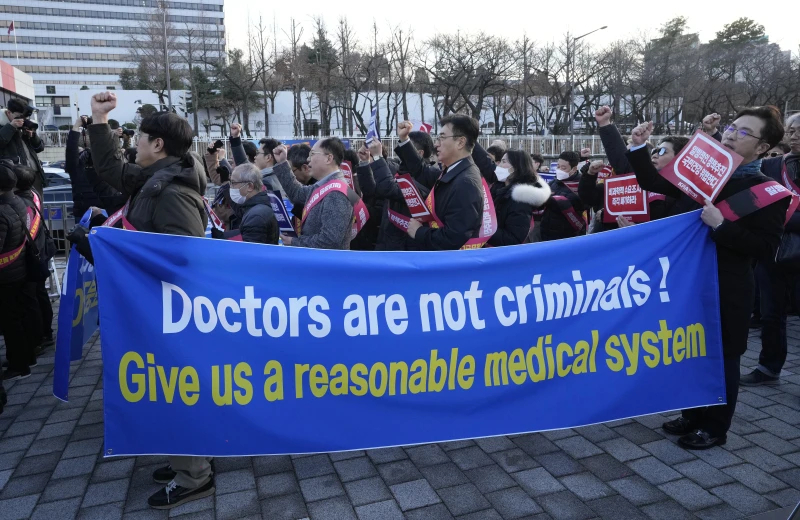
Doctors hold a protest against the South Korean government 's healthcare policy near the Presidential Office in Seoul on February 25, 2024. Photo: AP
Why are thousands of young doctors on strike?
The South Korean government plans to increase medical school enrollment by 2,000 students a year from 2025, aiming to add up to 10,000 doctors by 2035 to cope with the country's rapidly aging population. Officials say South Korea has 2.1 doctors per 1,000 people, far below the average of 3.7 in developed countries.
According to the striking interns, schools cannot cope with the sudden increase in medical students. They predict that the increased competition among doctors could lead to higher public health costs.
Furthermore, most of the additional medical students recruited will likely also choose to work in high-paying fields such as plastic surgery and dermatology. That means the country’s chronic shortage of doctors in essential but low-paying fields such as pediatrics, obstetrics and emergency medicine will not change.
Some experts say the young doctors on strike are simply protesting the South Korean government's plan because they fear adding more doctors will result in lower incomes.
Ahn Cheol-soo, a doctor-turned-lawyer, said on a local TV show that he supported the government's plan. But without policies to attract students to essential fields, "2,000 new dermatology hospitals will be established in Seoul in 10 years," Ahn said.
Consequences of the strike
The strikes have forced hospitals to cancel many scheduled surgeries and other medical treatments. On February 23, an 80-year-old woman who suffered a cardiac arrest reportedly died after seven hospitals refused to admit her, citing staff shortages or other reasons related to the strike.
In some major hospitals, interns make up about 30 to 40 percent of the total number of doctors, assisting senior doctors in surgery and treating inpatients. The strikers are among the country's 13,000 interns and residents. They work and train at about 100 hospitals in South Korea.
Following the strikes, the South Korean government extended working hours at public health facilities, opened emergency rooms at military hospitals to the public, and gave nurses the authority to perform some medical procedures normally performed by doctors.
Vice Health Minister Park Min-soo said Tuesday that the country's handling of critical and emergency patients remained largely stable. But observers say the country's overall medical services will be severely affected if the strike is prolonged or if senior doctors join the strike.
The Korean Medical Association, which represents some 140,000 doctors in South Korea, has been steadfast in its support for the trainee doctors. Park Jiyong, a spine surgeon in South Korea, said senior doctors at major hospitals were likely to join the strike in the coming days, which would virtually bring down the operations of those hospitals.
What happens next?
Vice Health Minister Park said on Monday (February 26) that the government will not take any disciplinary measures against striking doctors if they return to work before Thursday (February 29).
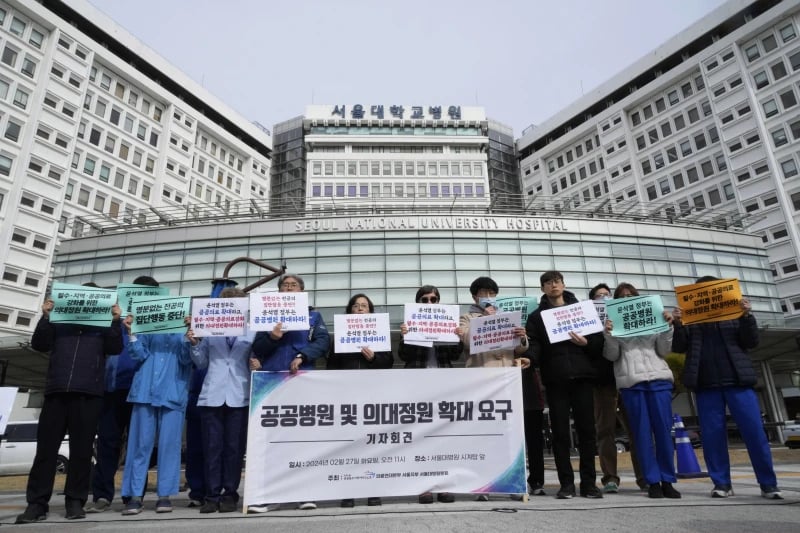
Members of the Korean Transport and Public Service Workers Union hold a protest at Seoul National University Hospital in Seoul, South Korea on February 27, 2024. Photo: Ahn Young-joon
However, he warned that anyone who continues to strike after that time will have their medical license suspended for at least three months and face legal consequences, such as investigation and prosecution by prosecutors. However, the striking doctors are not expected to return to work anytime soon.
South Korea’s medical law allows the government to order doctors to return to work when it deems a serious public health risk. Those who refuse to comply can have their medical licenses suspended for up to a year and also face up to three years in prison or a fine of 30 million won (about $22,500). Those who receive a prison sentence will have their medical licenses revoked.
Doctors are among the highest-paid professions in South Korea, and the protests by trainee doctors have so far failed to gain public support. A survey found that about 80 percent of respondents supported the South Korean government's recruitment plan.
Hoai Phuong (according to AP)
Source


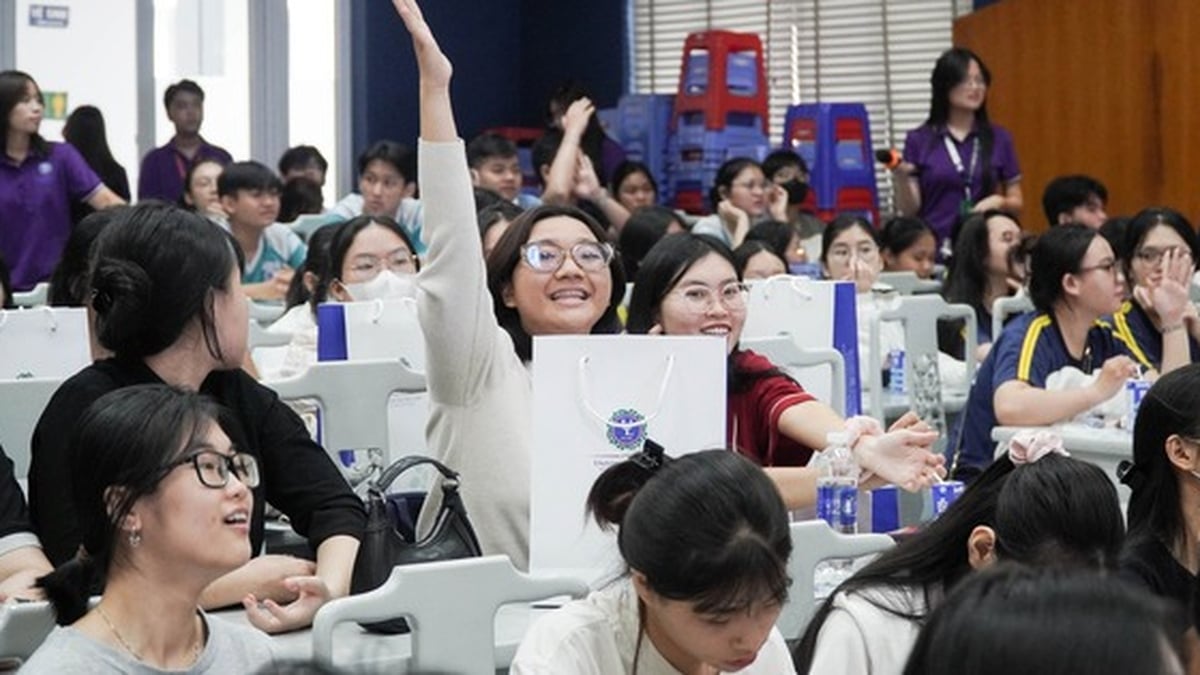



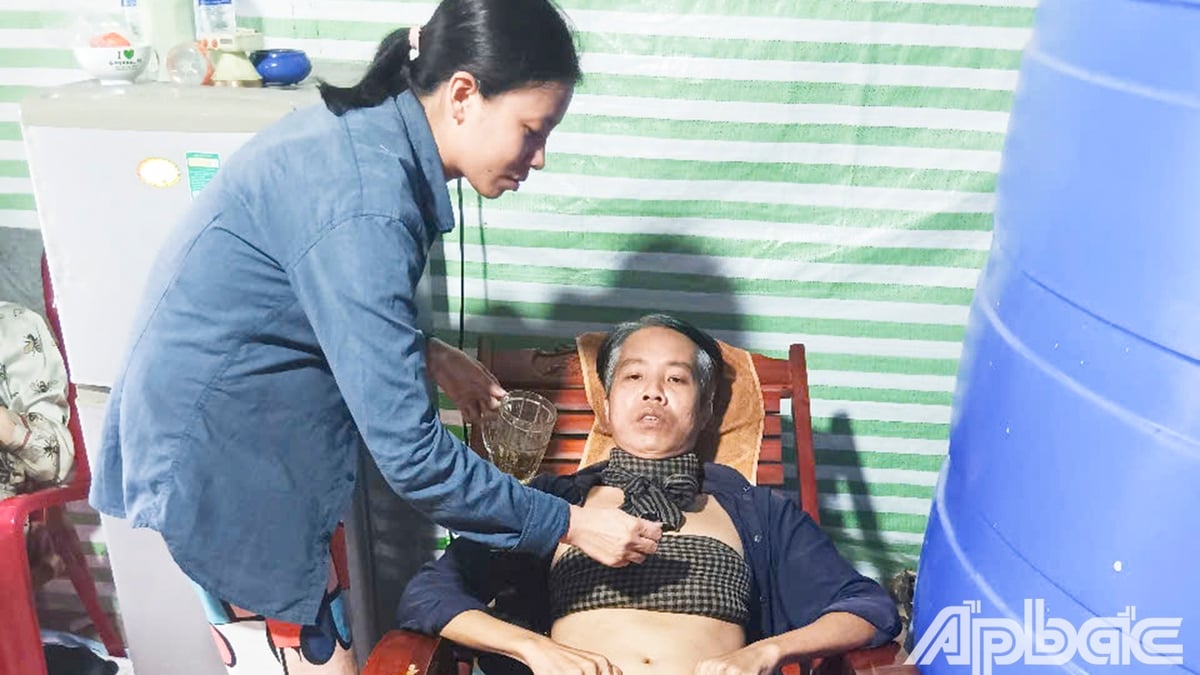

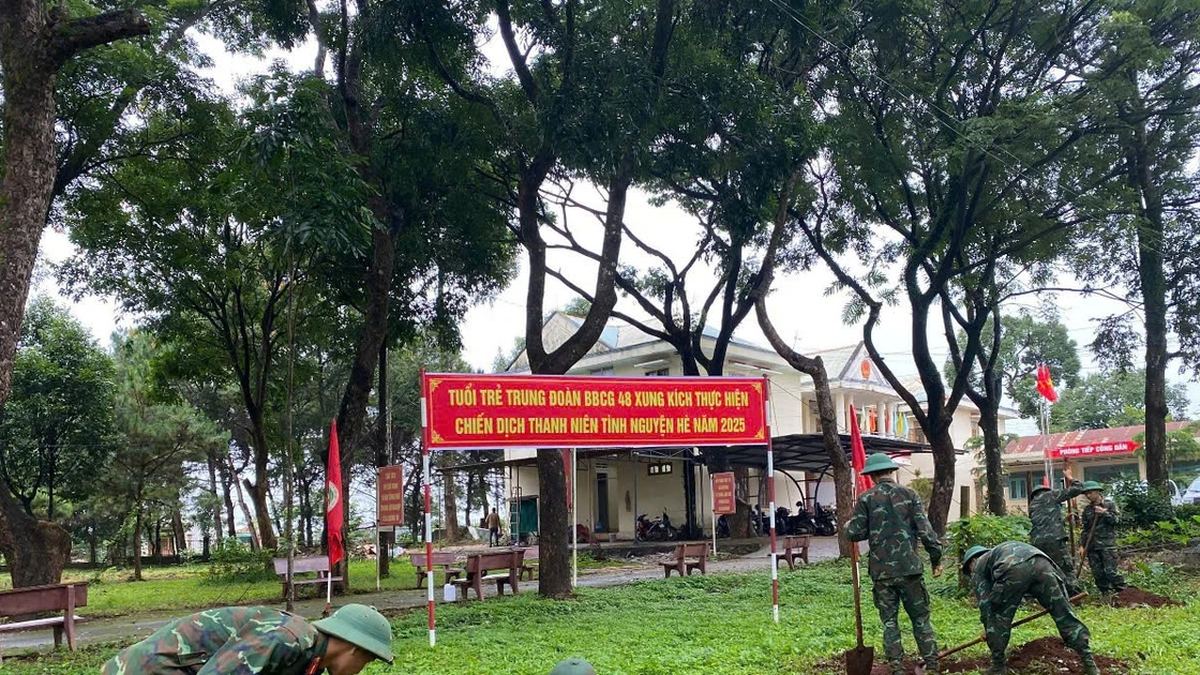


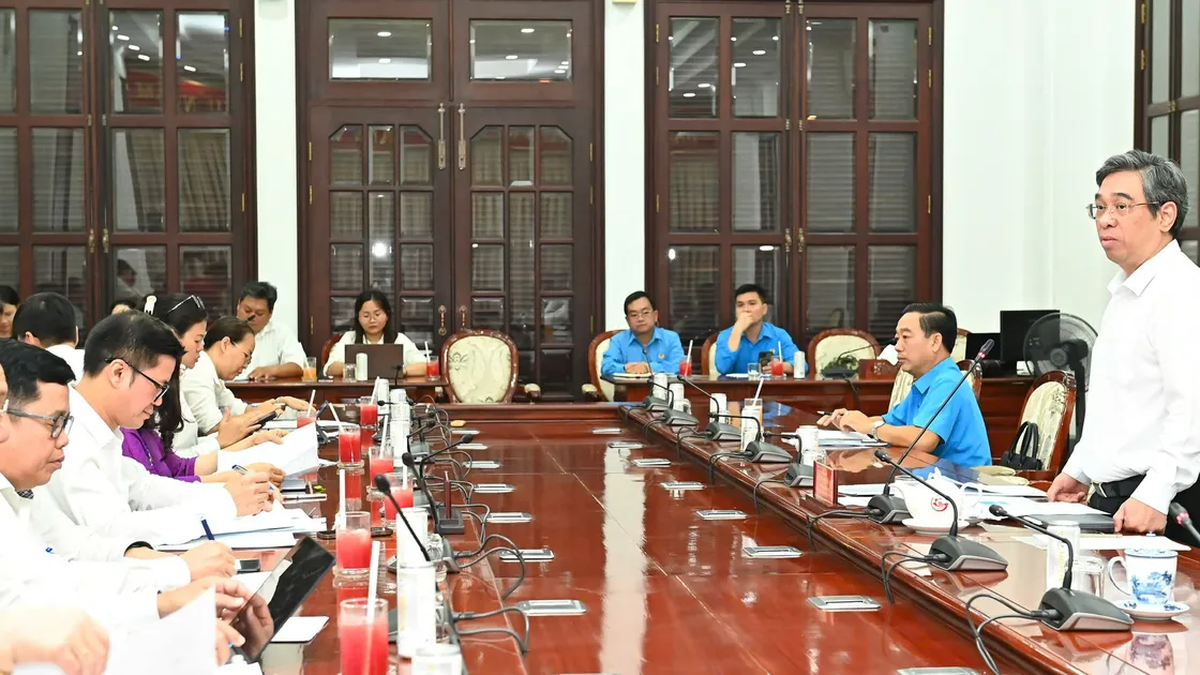















![[Photo] National Assembly Chairman Tran Thanh Man visits Vietnamese Heroic Mother Ta Thi Tran](https://vphoto.vietnam.vn/thumb/1200x675/vietnam/resource/IMAGE/2025/7/20/765c0bd057dd44ad83ab89fe0255b783)










































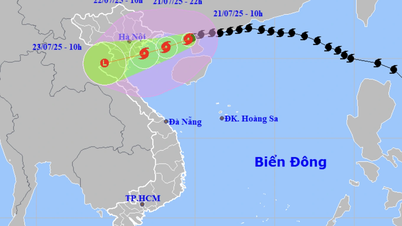






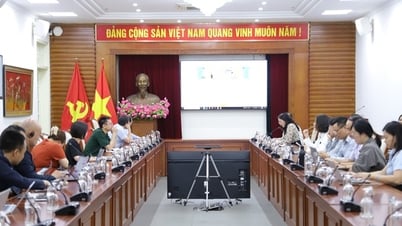






















Comment (0)